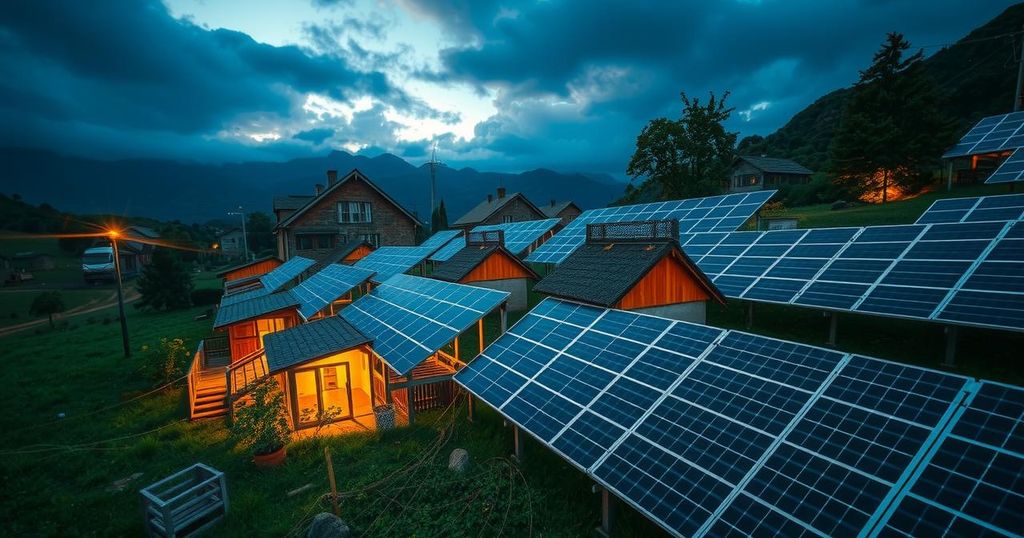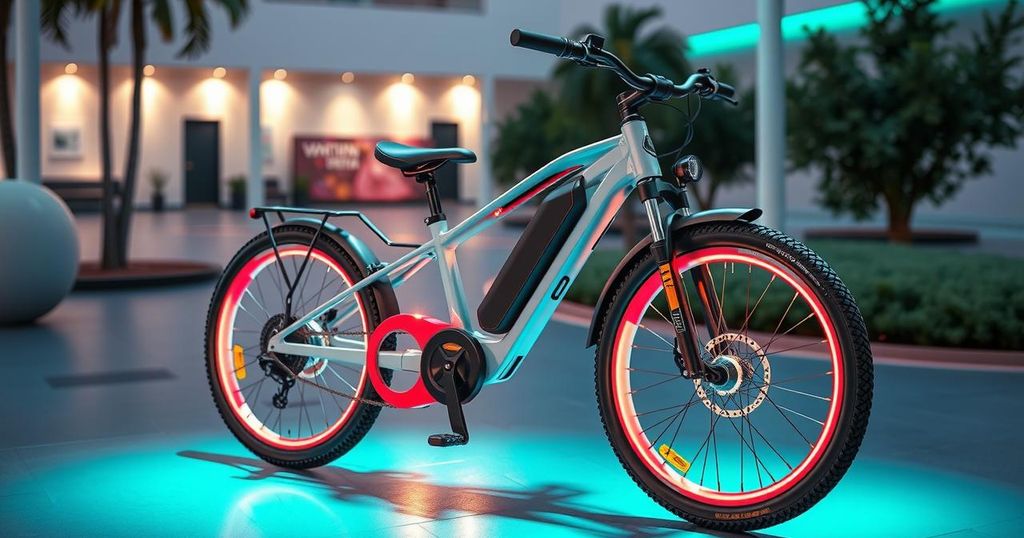Cars
ABVE, AMAZONAS, ASIA, BEIJING, BELO MONTE, BRASILIA, BRAZIL, BRAZILIAN ELECTRIC VEHICLE ASSOCIATION, BY, BYD, CEARA, CHINA, CHINA STATE POWER INVESTMENT CORPORATION, ENERGY, FELIPE CAMARGO GAIOTTO, GREEN HYDROGEN, INDUSTRY, MANAUS, MEXICO, NORTH AMERICA, PANATI, PEOPLE ' S DAILY, RENEWABLE ENERGY, RIO DE JANEIRO, SAO PAULO, SOUTH AMERICA, SPIC, STATE GRID CORPORATION OF CHINA
Maya Ramirez
0 Comments
China-Brazil Cooperation Expands Green Energy Initiatives in Brazil
China and Brazil are enhancing their green energy cooperation, exemplified by the operational Panati photovoltaic power station in Brazil, which supplies clean energy to over 350,000 households. The partnership between the two countries is significant for advancing sustainable development through numerous renewable energy projects, including electric vehicle sales, which have notably surged in Brazil.
On November 18, 2024, it was reported that the Panati photovoltaic power station in Brazil’s Ceara state, constructed by the Brazilian division of China State Power Investment Corporation (SPIC), became operational in June of this year. This facility, which spans 840 hectares and houses 446,000 solar panels, generates clean energy capable of serving over 350,000 households annually. Brazil’s government has been actively pursuing a transition to green energy, establishing clean energy cooperation as a focal point of its collaboration with China. The State Grid Corporation of China successfully completed the first two phases of the Belo Monte ultra-high-voltage transmission project in 2017 and 2019, respectively. This significant undertaking transports the extensive hydroelectric resources from Brazil’s northern region to the densely populated areas in the southeast. Furthering this commitment to green energy, in December 2023, the State Grid secured franchise rights for a new ultra-high-voltage direct current transmission project to move clean energy sources like wind and solar power from northeastern Brazil to Brasilia and surrounding regions. Emerging green power plants and electric transmission infrastructure are rapidly developing within Brazil. According to Brazilian scholar Felipe Camargo Gaiotto, Brazil possesses a wealth of experience in hydropower development, while China excels in solar, wind, and electricity transmission technologies. This partnership is vital for promoting global sustainable development initiatives. In addition to the progress in energy, green transportation is also gaining traction in cities such as Sao Paulo and Rio de Janeiro, where the presence of electric buses and cars from Chinese manufacturers is steadily increasing. Data from the Brazilian Electric Vehicle Association (ABVE) revealed that over 120,000 light electric vehicles were sold in Brazil during the first nine months of this year, representing a remarkable 113% increase compared to the previous year. Notably, eight of the ten best-selling electric vehicle models were produced by Chinese companies. The Chinese electric vehicle manufacturer BYD has established a battery production facility in Manaus, Amazonas, which began operations in 2020. This facility is significant as it serves as the first assembly base for lithium iron phosphate batteries in Brazil, designed to produce battery modules for 1,000 electric buses annually. Local production capabilities are essential, as they facilitate the adoption of green technologies and accelerate the electrification of public transportation throughout Brazil, thereby advancing local innovation in new energy technologies.
The growing collaboration between China and Brazil in renewable energy signifies a shift towards green cooperation, aiming to meet rising energy demands sustainably. Brazil, with its abundant natural resources and commitment to green energy, has engaged extensively with China, recognized as a leader in renewable technologies such as solar and wind power. This partnership not only enhances Brazil’s energy capabilities but also contributes to global efforts in climate change mitigation and sustainable development initiatives. The introduction of electric vehicles into Brazilian markets further exemplifies this transition, promoting eco-friendly practices in transportation alongside energy generation.
The China-Brazil green cooperation has proven instrumental in the advancement of clean energy solutions throughout Brazil, particularly through initiatives such as the Panati photovoltaic power station and the ultra-high-voltage transmission projects. This partnership underscores the significance of international collaboration in sustainable development, showcasing Brazil’s commitment to transitioning towards renewable energy and the increasing presence of electric vehicles in the country. The progress achieved thus far indicates promising prospects for future developments in both energy production and transportation, reinforcing the importance of continued collaboration between the two nations.
Original Source: www.cnhinews.com




Post Comment